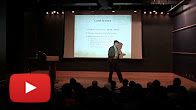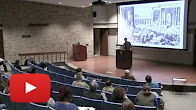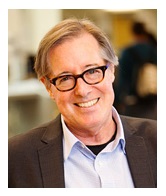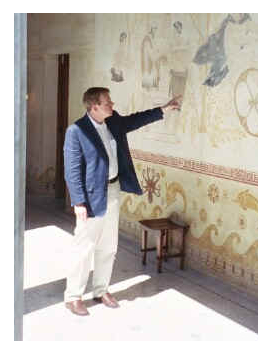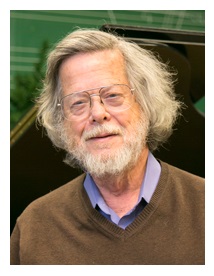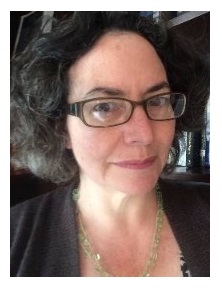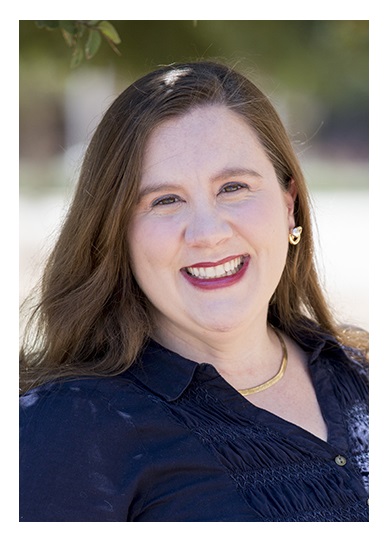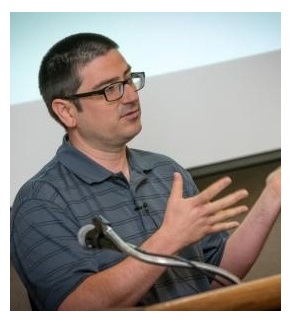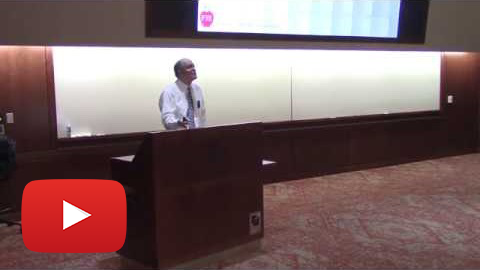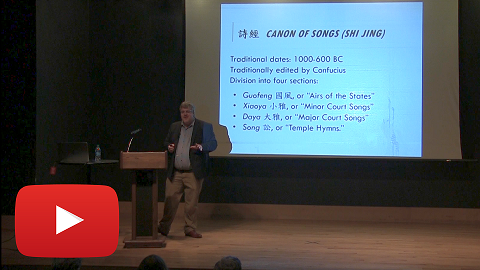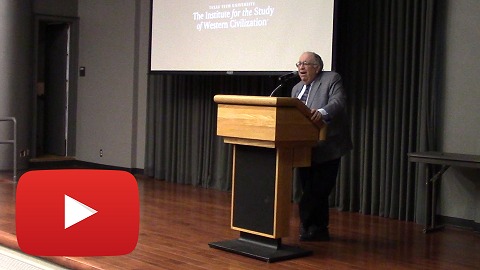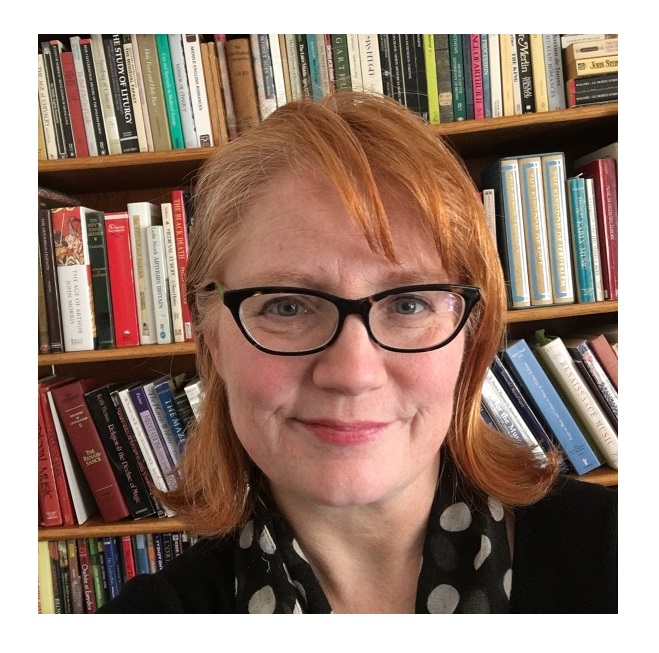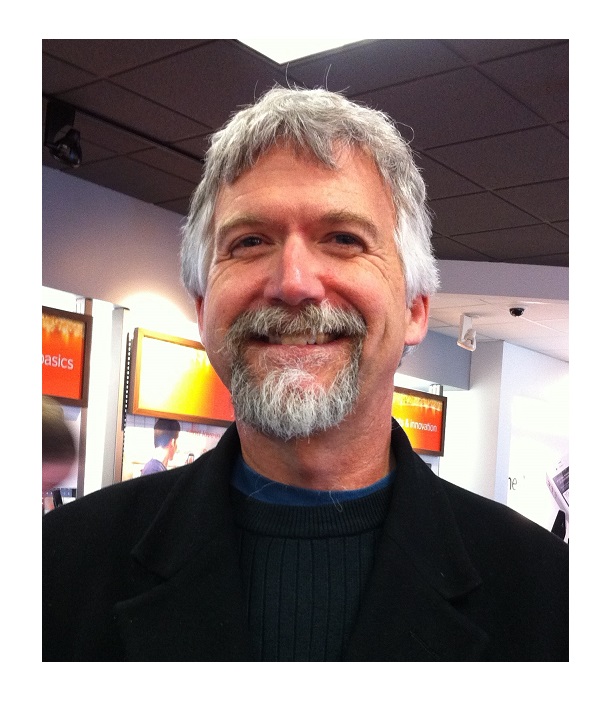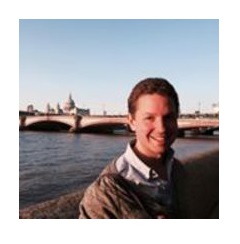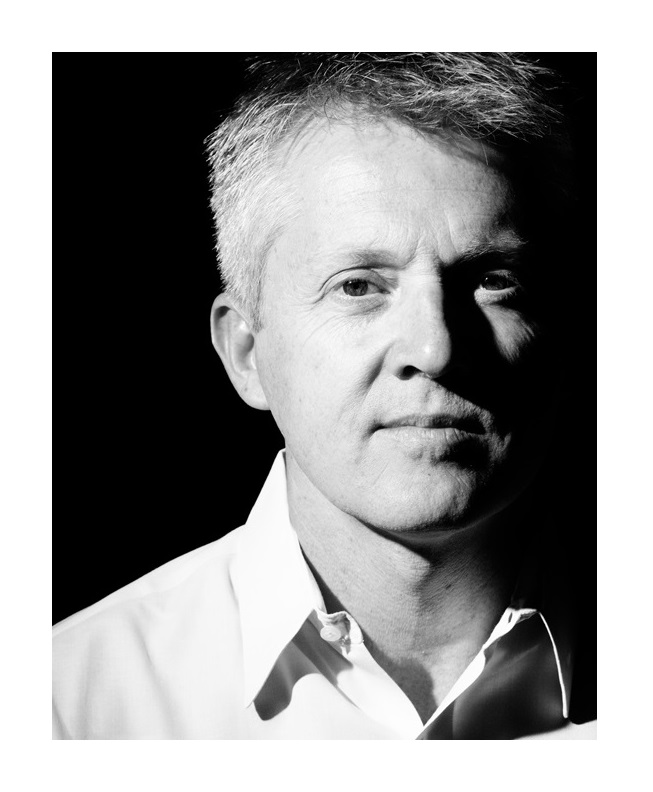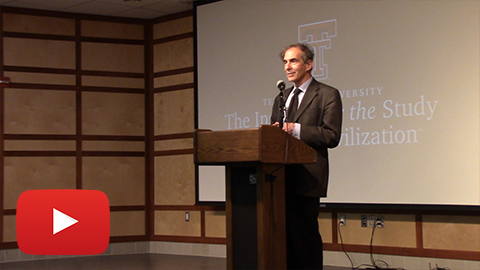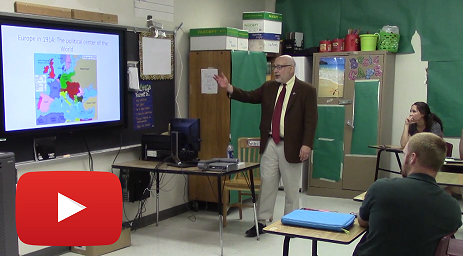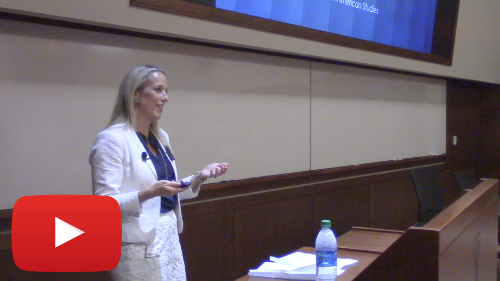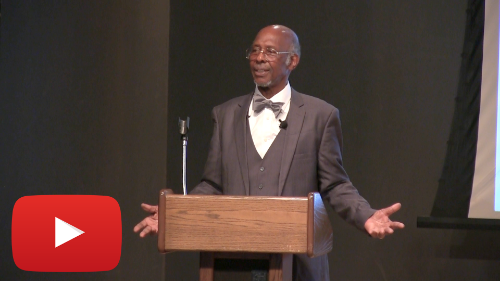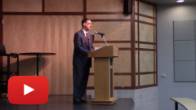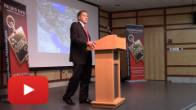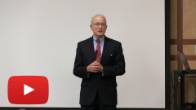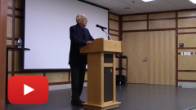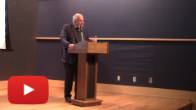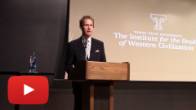Western Civilization Lecture Series 2018
2018 | 2017 | 2016 | 2015 | 2014 | 2013 | 2012
Watch the trailer for the Institute's Spring 2018 Lecture Series:
January 25, 2018
Featuring Dr. John Walbridge, Professor of Near Eastern Languages and Cultures at Indiana UniversityA major question in the historiograophy of the Scientific Revolution is why a scientific revolution did not occur in the Islamic world. Scholars who have dealt with the question have generally pointed to one or another cause for the disappearance of science and rationality in the Greek tradition by the 12th century. Unfortunately for such accounts, more recent research has shown that science in the Greek tradition, philosophy, and logic continued to be cultivated in the Islamic world into modern times. What was different was a focus on mysticism and related issues in later Islamic philosophy and the dominance of legal and linguistic concerns in logic. Moreover, there was no sharp cultural break in the Islamic (or Chinese) world comparable to the Protestant Reformation.
"Science and The Scientific Revolution" Lecture Series
Watch the sneak peek trailer for the Institute's weeklong lecture series commemorating
"Science and The Scientific Revolution."
February 8, 2018
Featuring Dr. Peter Dear, Professor of History and of Science and Technology at Cornell University
The term "the Scientific Revolution" became popular among historians following the Second World War. Although talk of a "revolution" in science in the sixteenth and seventeenth centuries had become common in the eighteenth century, many twentieth-century historians took to the new term for a variety of reasons that do not now always seem as persuasive as they once did. In recent decades academic historians of science have come to doubt the coherence of the concept itself, seeing it as something applied only in retrospect to a miscellany of different developments in the making of natural knowledge associated with famous names like Galileo and Newton. But in the last five or so years, several books have been published that attempt to restore the Scientific Revolution to its former place as a crowning achievement of European culture. This talk examines why a controversy exists over the matter, and what might be at stake for people (not just historians) in calling an entire period by such a name.
"Science and the Scientific Revolution" TTU Faculty Lectures:
February 15, 2018
Featuring Dr. Price Fishback, Thomas R. Brown Professor of Economics at Arizona State University
In his talk, Dr. Fishback addresses the question, "Is war good for the economy?" Many people have long thought so, citing the American experience during World War II as the lead example. The United States fought WWII to prevent the Axis from establishing fascism throughout large parts of the world. In his lecture, Dr. Fishback will talk about both the amazing output generated by the war effort and how much Americans sacrificed in the process.
February 22, 2018
Featuring Dr. Lawrence M. Mead, Professor of Politics and Public Policy at New York University
Professor Mead's lecture presents a radical argument that America's world dominance and also its chief challenges are rooted in cultural differences. The United States became rich and powerful largely because of an individualist culture, but it faces problems integrating the poor and immigrants largely because most of them lack that temperament. Individualism also promotes stronger government than in the non-West, so America must succor poor countries there. Thus, freedom entails burdens. It becomes obligation. The world's freest country has become the most responsible.
March 22, 2018
Featuring Dr. Alexander Beecroft, Jessie Chapman Alcorn Memorial professor of Foreign Languages at the University of South Carolina
How does Chinese poetry help us to understand the Greeks better? And vice versa? By looking at the forms, themes, and interpretation of the earliest Chinese poems, this lecture will provide insights into how to think about Greek poetry and archaic lyric.
"Shakespeare and his Legacy" Lecture Series
Watch the sneak peek trailer for the Institute's weeklong lecture series commemorating
"Shakespeare and his Legacy."
April 5, 2018
Featuring Paul Cantor, Clifton Waller Barrett Professor of English at the University of Virginia
If Shakespeare's plays constitute some of the great monuments of Western civilization, one reason is that they are deeply rooted in its grand traditions. Shakespeare's imagination ranged widely in terms of both geography and history. His historical plays chronicle the evolution of the British regime, from the chaos of feudal monarchy to the order of a modern centralized kingship. In his Roman plays, Shakespeare goes back to the ancient world to uncover the contribution of the classical republican tradition to the modern world. As a figure of the Renaissance, Shakespeare was positioned to draw on both ancient and modern traditions, and his plays can help us understand how the confluence of those traditions helped create our world today.
Professor Cantor specializes in comparative literature, Renaissance, and Romanticism. He has published extensively on Shakespeare and is well known for his writings on popular culture.
This event is the featured lecture of the Institute's highly anticipated "Shakespeare Week." In the days leading up to Paul Cantor's talk, several faculty members of Texas Tech will address the main topic of his lecture with their classes in various departments, which are listed below.
"Shakespeare and his Legacy" TTU Faculty Lectures:
April 19, 2018
Featuring Dr. James Ceaser, Professor of Politics at the Unviersity of Virginia
Americans today refer regularly to our founders and our founding, honoring those who led the Revolution and created the Constitution. Yet did Americans at that time understand these figures to be founders? Was this idea, which we now take for granted, part of the political understanding of the day? Almost certainly not. It took a bold step by James Madison to introduce the classical theme of the founder into American thought and ask Americans to see events of the time through the lens of founding. This simple yet powerful shift has changed how we understand our entire political heritage.
June 27, 2018
Featuring Dr. Stephen H. Balch, Director of The Institute for the Study of Western Civilization at Texas Tech University
Dr. Steve Balch of the Texas Tech Institute for the Study of Western Civilization
delivered a talk on "The Great War and How it Changed the World" at Iron's Middle
School in Lubbock, Texas on June 27, 2018. This lecture was part of the annual "Lights,
Camera, Extravaganza" teaching conference hosted by the Lubbock Independent School
District. This video is a composite of the two lectures delivered on the same day.
September 06, 2018
Featuring Dr. Anne Rathbone Bradley, Academic Director and the George and Sally Mayer Fellow for Economic Education of The Fund for American Studies
Dr. Anne Rathbone Bradley is the academic director and the George and Sally Mayer Fellow for Economic Education of The Fund for American Studies. She received her Ph.D. in economics from George Mason University in 2006. Previously, Dr. Bradley served as the vice president of economic initiatives at the Institute for Faith, Work & Economics and is currently a visiting professor of economics at Georgetown University and George Mason University. Her academic research focuses on income inequality, economic freedom, and the political economy of terrorism, with an emphasis on the industrial organization of al-Qaeda. Dr. Bradley has also worked as an economic analyst for the Central Intelligence Agency's Office of Terrorism Analysis.
This event was sponsored by The Free Market Institute and The Institute for the Study of Western Civilization at Texas Tech University.
CONSTITUTION WEEK: A Lecture Series Event
September 13, 2018
Featuring William B. Allen, Emeritus, Dean and Professor, Michigan State University
and current Visiting Professor of Conservative Thought and Policy, University of Colorado
In the beginning, Americans got it right. They did not fall for the false choice between
the comfort of the least and the potential of the best, sometimes posed as a choice
between the common good and individualism. Instead, the founders envisioned a productive
people who were at the same time a caring people. They identified social progress
with realizing the potential of the best. Lately social progress tends to be identified
with the comfort of the least. As a result, many have turned away from relying upon
creative and productive individuals to advance society and first of all look at citizens
as wards of the state (the disadvantaged) and secondly as lucky (the advantaged; “you
didn't build that”). The problem is, a society can care for the least of its members
only when it fosters the productivity of the best of its citizens. An upside down
view of praiseworthy character threatens to undermine the foundation of social progress
in good character. Good character in turn builds upon conscientious self-reliance.
This event was the featured lecture of the Institute's highly anticipated "Constitution
Week."
"Constitution Week" TTU Faculty Lectures:
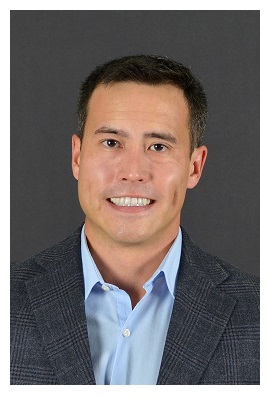
Ryan Hackenbracht
Assistant Professor, Department of English, TTU
"Holy Disobedience, Compulsory Liberty: Hobbes, Locke, and the Biblical Right to Be
Bad"
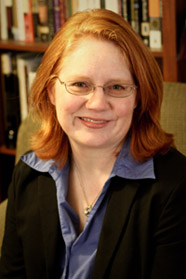
Stacey Jocoy
Associate Professor, School of Music, TTU
"From Yankee Doodle Dandy to Hamilton: Music that Makes the Nation"
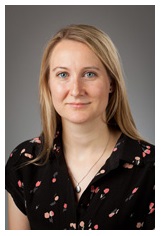
Erin-Marie Legacey
Assistant Professor, Department of History, TTU
"The Dead and the Founding of the French Revolution"
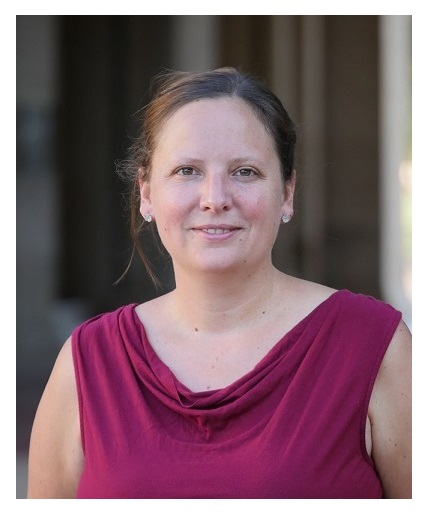
Sydnor Roy
Assistant Professor of Classics, Department of Classical and Modern Languages and
Literatures, TTU
"Lawgivers or Tyrants: Plutarch's Lives and the contested status of the 'Founding
Fathers' in Revolutionary -era America"
September 19, 2018
Featuring Bruce Brasington, Professor of History at West Texas A&M University
A century ago, Henry Adams declared that the Middle Ages, symbolized by the soaring arches and beautiful sculptures of Chartres cathedral, had been surpassed by modern science and industry: For seven hundred years Chartres has seen pilgrims, coming and going more or less like us, and will perhaps see them for another seven hundred years; but we shall see it no more, and can safely leave the Virgin in her majesty, with her three great prophets on either hand, as calm and confident in their own strength and in God's providence as they were when Saint Louis was born, but looking down from a deserted heaven, into an empty church, on a death faith. Today, his judgment seems even more apt, the Middle Ages even more remote and seemingly irrelevant, or our world of smartphones and tablets. I disagree. For all its shortcomings, hypocrisies, even horrors, the Middle Ages deserves more from us than exploitation as fantastic entertainment or contempt as a "Dark Age." We shall discover that, across the centuries, medieval people speak to us about the permanent things, the things that matter: faith, hope, and love. And the last most of all.
October 4, 2018
The Phi Beta Kappa Society Visiting Scholar Program
FeaturingJamsheed Choksy, Professor and Chairperson of the Department of Central Eurasian Studies at Indiana
University, Bloomington
Shahs, ayatollahs, and protestors come to mind as stereotypical images of Iran in
the twentieth and twenty-first centuries. Yet contemporary Iran has been shaped not
just by kings, clergy, and uprisings. This topic discusses how the country's geography,
natural resources, international relations, and domestic changes combined with foreign
influences and interventions to produce a political system in which the executive,
legislative, and judicial branches of government—not dissimilar to those of the US—become
subordinate to a theocratic establishment.
Dr. Jamsheed Choksy's writings and lectures explore why human existence is viewed
as a struggle between good and evil, and how beliefs and practices shape people's
lives and actions. He is a leading authority on the Arab conquest of Iran, Iraq, the
Persian Gulf, and Central Asia, the spread of Islam, and the impact of faith on politics,
international relations, and security. He is a member of the National Council on the
Humanities, and has held fellowships from the Institute for Advanced Study (Princeton),
National Endowment for the Humanities (Washington, DC), Guggenheim Foundation, the
Center for Advanced Study in the Behavioral Sciences (Stanford), American Philosophical
Society, and the American Academy of Religion. His many publications include Conflict
and Cooperation: Zoroastrian Subalterns and Muslim Elites in Medieval Iranian Society.
October 15, 2018
Featuring Former United States Ambassador of Qatar Chase Untermeyer
Qatar, a small but very wealthy Persian Gulf principality, has carved a unique niche for itself in the Middle East. Tourist friendly, host to a major United States Air Force base and home to Al Jazerra (the leading Arab news network), Qatar punches far above its weight. Yet today, it is ostracized by most of its Arab neighbors. Why has this happened? How does it affect the confrontation between Iran and the Sunni Arab states? What does it mean for American foreign policy in this highly strategic area? Ambassador Untermeyer's lecture provides an expert analysis of these questions.
Chase Untermeyer served as United States Ambassador between 2004 and 2007. A graduate of Harvard College and naval veteran, he held the post of Assistant Secretary of the Navy for Manpower and Reserve Affairs under President Ronald Reagan and Director of the Voice of America under President George H.W. Bush, and is the founding President of the Qatar-American Institute.
October 24, 2018
Featuring Paul Hollander, Professor Emeritus of Sociology, University of Massachusetts Amherst
In his lecture, Dr. Hollander discussed the admiration of dictators such as Mussolini, Hitler, Stalin, Mao and Castro (among others) on the part of many contemporary Western intellectuals (and non-intellectuals), and ask the question, can intellectuals be true believers? Brought to light will be the problems of modernity with reference to secularization, the decline of community, and social isolation. Even further, Dr. Hollander unveiled misperceptions and misconceptions of modern dictators as charismatic figures, redeemers and wise power-holders alike, and explored how the corresponding misconceptions of their political system is seen as the incarnation of social justice, solidarity and meaningful life.
Dr. Paul Hollander is professor emeritus of sociology at the University of Massachusetts Amherst and an associate of the Davis Center for Russian and Eurasian Studies at Harvard University. He is author or editor of 15 books, and recently completed a study of political hero worship in recent times.
"THE SHADOW OF THE GREAT WAR" - A Lecture Series Event
November 12, 2018
Featuring Jay Winter, Professor of History Emeritus, Yale University
In this talk, Dr. Jay Winter presents a bifurcated interpretation of the history of the Great War, dividing it into two parts: the first lasting from 1914 to 1917, the second from 1918 to 1923. In this way, Dr. Winter outlines two major changes in historiography which have occurred in recent years, this first being a shift of the geographical epicenter of the war from Paris to Warsaw, and the second being a shift in the chronology of the war, one which recognizes its failure to end in 1918.
Dr. Winter's interpretation suggests that there was a crisis in 1917 which separates the first three years of the conflict from the years that followed, and was largely the result of powerful economic and demographic pressures which destabilized all the combatants, though the Central powers more than the Allies. This crisis abated somewhat in the west in 1918 but continued in the east in an exacerbated form for the following five years. Hatred, hunger, and class conflict were radicalizing elements in the disorder of the post-Imperial world, set adrift by the collapse of the Romanoff, Hohenzollern, Habsburg, and Ottoman empires. Post-imperial violence was endemic in these regions, merging civil war, ethnic conflicts, and national conflicts which played out in what we might well call the Second Great War. Dr. Winter's claim is that the passage from wartime crisis to post-imperial violence was seamless, and part of one complex but distinctive phase of European history, starting in 1918 and terminating more or less in 1923.
Dr. Winter is a specialist on World War I and its impact on the 20th century. In addition to writing and co-authoring numerous books, Dr. Winter was also co-producer and writer of the award-winning PBS/BBC documentary series, The Great War and the Shaping of the 20th Century.
This event is the featured lecture of the Institute's highly anticipated "Great War Week." In the days leading up to Dear's talk, several faculty members of Texas Tech also addressed the main topic of his lecture with their classes in various departments.
"The Shadow of the Great War: the Armistice's Centennial"
TTU Faculty Lectures:
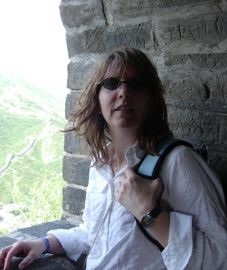
Jen Shelton
Associate Professor, Department of English, TTU
November 8th
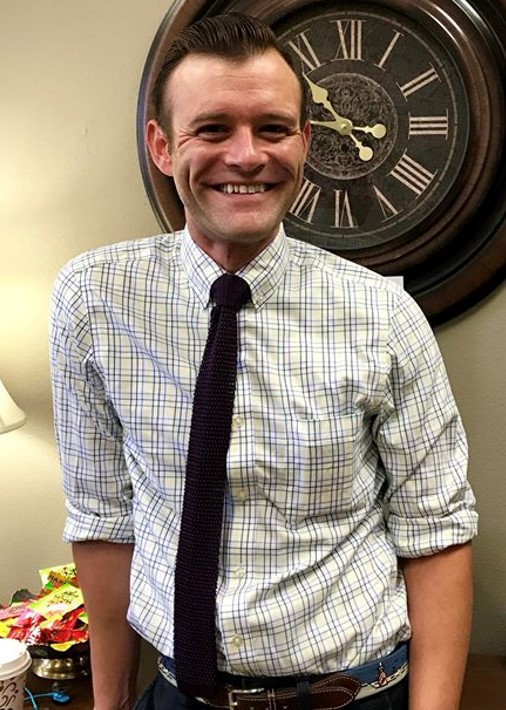
Richard Lutjens
Assistant Professor, Department of History, TTU
November 14th
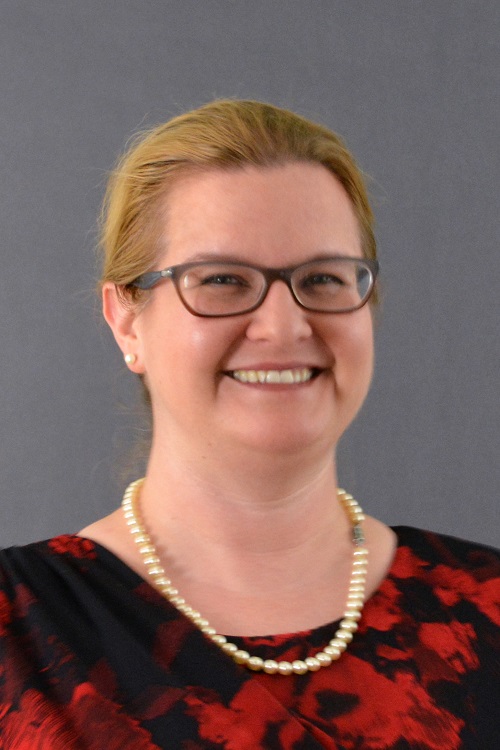
Allison Whitney
Associate Professor, Department of English, TTU
November 15th
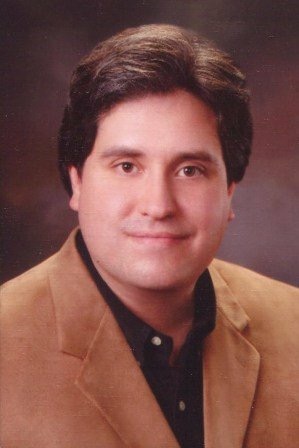
Dr. Michael Fredrick Rollin
Instructor, Department of History at
Texas Tech University, Fredericksburg/Highland Lakes
November 20th
November 27, 2018
Featuring Bruce Gilley, Professor of Political Science, Portland State University
In this talk, Professor Gilley will argue that European colonialism in the 19th and 20th centuries had an overwhelmingly positive impact on colonial areas, whether located in India, Indonesia, Nigeria, or Belize. He will examine the empirical evidence and then seek to explain why colonialism fell out of favor and so rapidly disappeared in the 20th century. This will be followed by a discussion of post-colonial trajectories and the development of a new "neo-colonial" phenomenon, countries with weak administrative capabilities contracting with foreign governments to provide basic services, sometimes in specially cordoned zones.
Dr. Bruce Gilley's research centers on comparative and international politics and public policy. His work covers issues as diverse as democracy, climate change, political legitimacy, and international conflict. He is a specialist on the politics of China and Asia.
The Institute for the Study of Western Civilization
-
Address
Mailing Address: Box 42019 - The Institute for the Study of Western Civilization, Lubbock, TX 79409-2019 -
Phone
806.834.8289 -
Email
steve.balch@ttu.edu

